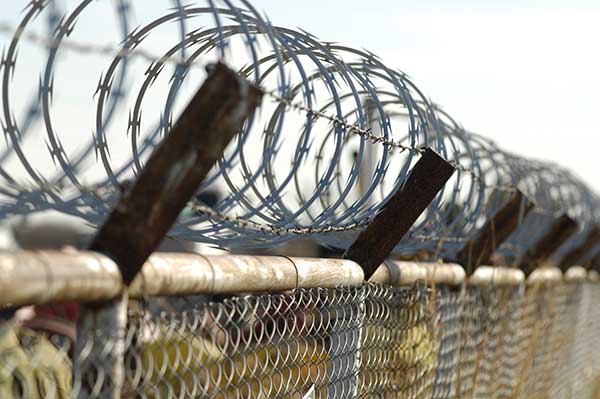Marble Falls resolution focuses on border crisis, influx of children

DANIEL CLIFTON • PICAYUNE EDITOR
MARBLE FALLS — Though the U.S.-Mexico border is several hundred miles away, Marble Falls leaders want nothing to do with the influx of children crossing into the country that’s left some communities bewildered and the federal government reeling over what to do with the 50,000-plus unaccompanied youth.
On July 15, the Marble Falls City Council adopted a resolution by unanimous vote to call on federal officials to not request establishing housing or processing facilities within the city for the flood of foreign, unaccompanied children. But the resolution, as passed, wasn’t quite as tough as the sponsor, council member Raymond Whitman, would have liked.
“It was as good as any compromise,” he said after the vote. “It’s not nearly as strong as I would have liked. I find it irritating when you have people who do not have enough stomach to take a stand on something.”
But for at least one Marble Falls resident, it was still a bit over the top.
“What we were seeing was national politics intruding on the operation of our city government,” said Charles Watkins, who attended the meeting. “It’s basically just a temper tantrum.”
Watkins said even if the majority of Marble Falls residents support the wording of the resolution, it’s not the city council’s or municipality’s role to annunciate those political opinions and send them up to the state and federal government. He added that individuals, political parties and organizations are free to express those opinions and share those grievances with the state and federal governments, but city government should focus on city issues.
As far as he knew, the federal government hasn’t even approached Marble Falls about transporting any of the children to the community.
Whitman, however, said the resolution was about protecting Marble Falls taxpayers and residents, both from a pocketbook perspective and in regard to health concerns. The council member added a sudden influx of these children could definitely hit city coffers.
He pointed out that McAllen, which sits on the U.S.-Mexico border, is facing a tremendous financial hit from the mass of children crossing into Texas. Whitman said that city is eyeing spending $1.1 million on the problem with a possibility of the federal government reimbursing McAllen for only $640,000.
“If we had an expense like that in Marble Falls, it would bankrupt us,” he said.
But Martin countered that McAllen also sits on the frontline of the influx and must deal with some of children before they can get processed by the U.S. Border Patrol.
One of Whitman’s biggest concerns focuses on illnesses the youth and other illegal immigrants might be harboring. He listed a series of diseases the children could be carrying including scabies, tuberculosis, MRSA (a penicillin-resistant form of staph infection), cholera, diphtheria and measles. And it’s not just people from Central America who are coming across the border but also immigrants from countries as distant as Africa, India and the Far East.
It’s possible these individuals might be carrying diseases that are different strains than what U.S. health officials deal with and against which current vaccines don’t protect, Whitman added.
And then there’s the immigration status of the children. Are they illegal immigrants or refugees?
“They are not refugees,” Whitman said. “They are illegal aliens, even if they are children.”
Watkins, though, disagrees and turns to the law to back up his claim.
“My opinion is they’re refugees,” he said. “If you look at the law passed in 2008, it makes it very clear that’s what they are. I can understand why people disagree with that.”
President George W. Bush signed the William Wilberforce Trafficking Victims Protection Reauthorization Act of 2008, which basically gave unaccompanied children from countries other than Canada and Mexico added protection and consideration. The law was an effort to curb sex trafficking and other forms of illegal trafficking. Under its guise, unaccompanied children from noncontiguous countries who illegally enter the United States are provided a chance for an immigration hearing and meeting with an advocate and possibly legal counsel.
Officials say these additional steps are adding time onto the possible repatriation of the 50,000-plus minors who have streamed across the U.S. border in the past several months.
Whether “illegal immigrants” or “refugees,” Whitman doesn’t want the resolution to be interpreted as a lack of compassion by him or anyone else who supports it.
“I don’t want anybody to believe that I don’t have compassion for these children,” he said. “However, I have children of my own, nieces and nephews, and I hope someday I’ll have grandchildren, (and) I want to make sure they have the same type of good health opportunities that we do without all those other diseases brought in.”
With the passage, city officials will now forward the resolution onto state and federal representatives.
Reporter Conney Swinney contributed to this article.
editor@thepicayune.com


